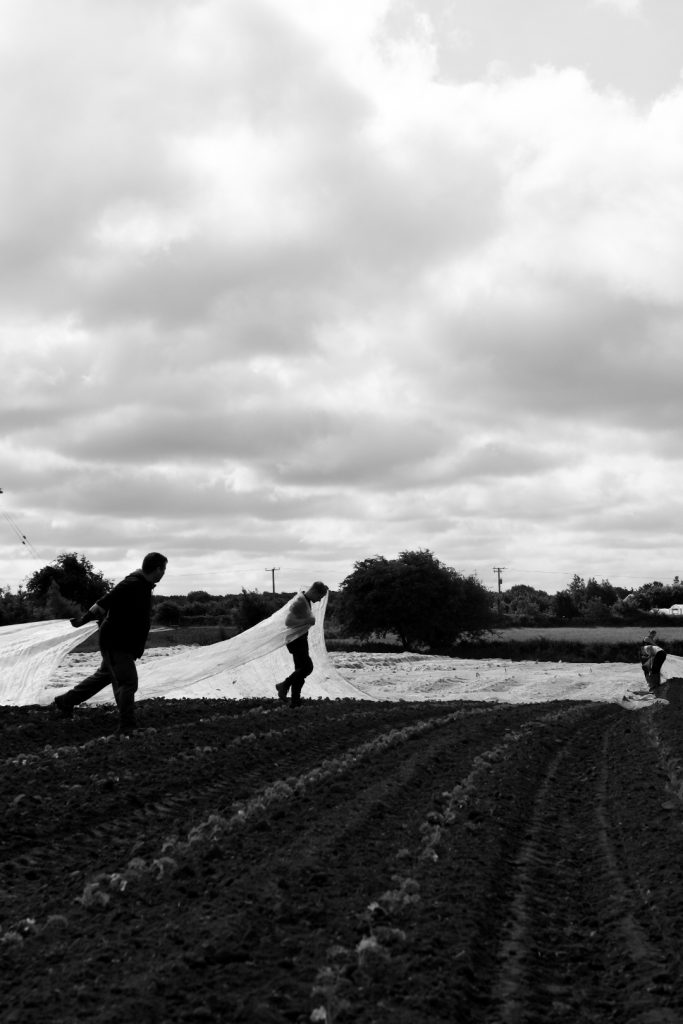When we started our farm and business it was with the aim of keeping chemicals out of our food chain. Chemicals applied enmasse out in nature destroy biodiversity and hurt our health.

Many years ago, I had the pleasure of sitting with Darina Allen and directing questions at a Dept of Agriculture official on why the residual level for glyphosate (Roundup) in oats was much higher than that in wheat. His answer, people eat less oats! Apparently, you can have a higher concentration of this probable carcinogen in oats because people in general eat less oats than wheat. The limit “deemed safe” in wheat is 10mg/kg and in oats it is 20mg/kg, twice that of wheat.
If you would like to listen to my weekly rant in video form CLICK HERE
No herbicide in the history of our planet has been applied so heavily as glyphosate (the active ingredient in the weedkiller ‘Roundup’) it is quite literally everywhere and in everything.
Virtually all known conventional foodstuffs containing some processed product derived from soya, wheat or corn will have had an application of glyphosate.
The people who watch out for our health set maximum residue levels (MRLs: this is the highest limit of chemical that is allowed in food). These MRLs are supposed to protect the consumer, but they can also be set based on what is required by agriculture to be an effective dose to control a pest or disease. The concentration required to kill a weed can often be much higher than that which is considered “safe” to consume (if consuming toxic chemicals can ever be deemed safe).
These limits are often arrived at *in partnership with the Agri-chemical companies* who manufacture the herbicides and pesticides!
Take the maximum residue level of glyphosate in wheat by country:· Canada 5 mg/kg· EU 10 mg/kg· USA 30 mg/kg
Apparently, it is safer to eat more glyphosate in the USA than it is in Canada ….!? As the application of glyphosate has grown exponentially the assessment of what is safe in our food has also increased and so MRLs have increased.
The increase of allowable glyphosate residues in crops is directly correlated with the introduction of genetically engineered crops that are resistant to glyphosate.
In 1990 3.5 million kgs of glyphosate were applied in the USA, in 2014 that number was 113 million kgs. At these rates of application, the total volume of glyphosate applied in 2014 was sufficient to treat 30 % of globally cultivated land. Nearly 9 billion kg have been sprayed since 1974, this is a mind boggling number.
Glyphosate has been labelled as a “probable carcinogen” by the world health Organisation. The state of California labelled glyphosate as “Carcinogenic”. The conventional agriculture industry, and even the EPA, often claim pesticides are safe right up until the moment they are banned because of overwhelming evidence showing they are toxic to humans.
We are all doing what we can, conventional farmers are stuck in a broken food system, we all are, but eating organic where you can is the very best chance you have of avoiding free helpings of the chemicals like glyphosate. There are some rays of hope breaking through and although the EU granted a further 10 years of use of glyphosate in the EU, the use of this toxin for drying (desiccation) crops before harvest has been prohibited and this is a very positive step.
Through your support we are supporting a system that keeps chemicals out of our food chain.
Thanks as always, here’s to clean healthy food.
Kenneth
PS We are coming into the season of loveliness now, loads of fresh Irish produce, we are just waiting with bated breath for our own tomatoes, they are much later this year due to the cold spring, and you would be forgiven for thinking it was the middle of November at times during the week, I keep waiting for the “summer” to “start”! Anyway in the meantime you can check out our wonderful farm and farmers produce here: See our IRISH SECTIOH HERE
















